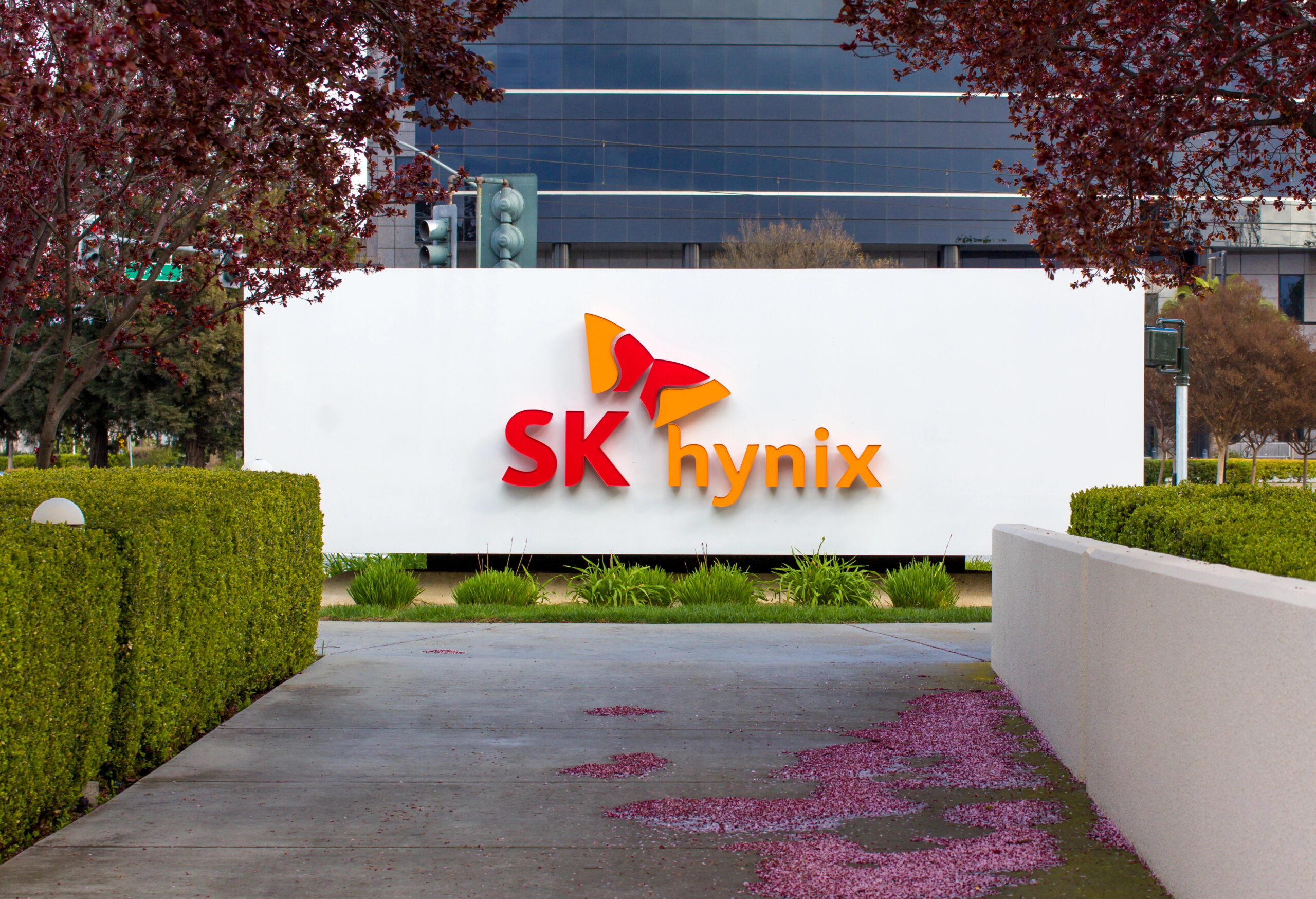SK Hynix has announced a substantial $6.8 billion investment in a new chip manufacturing plant in South Korea. This effort is to address the growing global demand for advanced semiconductors. As a key supplier for industry giant NVIDIA, SK Hynix’s decision underscores the critical importance of expanding production capacity in the face of surging market needs. This investment positions SK Hynix to strengthen its competitive edge. At the same time highlights a broader trend toward enhancing domestic chip production capabilities. For professionals in the tech industry, this development signals a significant shift in the semiconductor landscape. With far-reaching implications for supply chain resilience and technological innovation in the Asia Pacific region and beyond.
SK Hynix Announces $6.8 Billion Investment in New Semiconductor Fab in South Korea
SK Hynix, a global semiconductor manufacturer, unveiled plans for a $6.8 billion investment in a new chip fabrication plant in South Korea. This strategic move comes as a response to the growing worldwide demand for advanced memory chips and aims to solidify the company’s position in the competitive semiconductor market.
Expanding Production Capacity
- The new state-of-the-art facility, slated to begin operations in 2026, represents a significant expansion of SK Hynix’s production capabilities. By increasing its manufacturing capacity, the company positions itself to meet the escalating needs of various industries. These include artificial intelligence, data centres, and next-generation IT infrastructure. This investment underscores SK Hynix’s commitment to maintaining its competitive edge. Thus, ensuring a stable supply of cutting-edge memory chips to its global clientele.
Implications for the Tech Landscape
- For IT professionals and decision-makers in the Asia Pacific region, this development signals a shift towards enhancing domestic chip production capacity. The investment is expected to bolster supply chain resilience, a critical factor in today’s interconnected global economy. By localizing a significant portion of its production, SK Hynix secures its supply lines. At the same time, contributed to the technological advancement of the semiconductor industry in South Korea.
Future-Proofing the Semiconductor Industry
- As a key supplier for industry giants like NVIDIA, SK Hynix’s expansion is poised to have far-reaching effects on the tech ecosystem. The new fab will likely incorporate cutting-edge technologies and processes, enabling the production of more advanced and efficient memory chips. This move is anticipated to spur innovation across the semiconductor value chain, potentially leading to breakthroughs in chip design, manufacturing processes, and application development.
By investing in domestic production capabilities, SK Hynix is not only addressing current market demands but also preparing for future technological challenges. This strategic investment also exemplifies the company’s long-term vision and its role in shaping the future of the global semiconductor industry.
Driving Forces Behind SK Hynix’s Move to Expand Production Capacity
Growing Global Demand for Advanced Memory Chips
- As you examine SK Hynix’s decision to invest $6.8 billion in a new chip plant, you’ll recognize the primary driving force: the surging global demand for advanced memory chips. This demand stems from the rapid expansion of IT infrastructure, artificial intelligence (AI) development, and data centres worldwide. You’ll notice that these sectors require increasingly sophisticated and high-performance memory solutions, creating a robust market for SK Hynix’s products.
Strengthening Competitive Position
- In the fiercely competitive semiconductor industry, you’ll understand that maintaining a technological edge is crucial. By expanding its production capacity, SK Hynix aims to solidify its position as a key supplier for industry giants like NVIDIA. This strategic move allows the company to not only meet current demand but also to prepare for future market growth, ensuring it remains at the forefront of memory chip innovation and production.
Enhancing Supply Chain Resilience
- As you consider the global semiconductor landscape, recognize the importance of supply chain resilience. SK Hynix’s investment in domestic production capacity addresses concerns about potential disruptions in the global supply chain. By increasing its manufacturing capabilities within South Korea, the company can better insulate itself from geopolitical tensions and logistical challenges that may affect international chip production and distribution.
Fostering Technological Advancements
- You’ll appreciate that this expansion also serves as a catalyst for technological progress. The new fabrication plant, set to be operational by 2026, will likely incorporate cutting-edge manufacturing processes and equipment. This investment not only boosts SK Hynix’s production capabilities but also drives innovation in semiconductor manufacturing techniques, potentially leading to more efficient and powerful memory chips in the future.
Implications for the Global Semiconductor Supply Chain
Strengthening Regional Production Capacity
- SK Hynix’s $6.8 billion investment in a new chip plant in South Korea will significantly bolster the global semiconductor supply chain. You can expect this move to increase the overall production capacity for advanced memory chips, addressing the current shortage and meeting the growing demand from various tech sectors. This expansion will likely reduce your reliance on a limited number of suppliers, potentially leading to more stable prices and improved availability of critical components for your IT infrastructure projects.
Enhancing Supply Chain Resilience
- The new facility will contribute to a more robust and diversified semiconductor supply chain. You’ll notice increased redundancy in production capabilities, which can help mitigate risks associated with geopolitical tensions, natural disasters, or other disruptions. This enhanced resilience may provide you with more reliable sourcing options and reduce the likelihood of severe supply chain bottlenecks that have plagued the industry in recent years.
Accelerating Technological Advancements
- With this substantial investment, you can anticipate accelerated innovation in semiconductor technology. The new plant will likely incorporate cutting-edge manufacturing processes, potentially leading to more advanced and efficient chip designs. This could translate into improved performance and energy efficiency for your data centres and AI applications. Additionally, you may see faster time-to-market for new chip technologies, enabling quicker adoption of emerging IT solutions in your organization.
Shifting Global Competitiveness
- SK Hynix’s expansion will likely intensify competition among major semiconductor manufacturers. You might observe other companies following suit with similar investments, potentially leading to a more dynamic and innovative market. This increased competition could result in more options for your procurement strategies, potentially offering better value and more tailored solutions for your specific IT needs.
What This Means for NVIDIA and Other SK Hynix Customers

Enhanced Supply Chain Stability
- SK Hynix’s $6.8 billion investment in a new chip plant signifies a major boost for its customers, particularly industry giants like NVIDIA. This expansion will likely result in a more stable and reliable supply chain for memory chips, a critical component in various technological applications. As a customer, you can expect reduced vulnerability to supply chain disruptions and potentially shorter lead times for orders. This increased production capacity may also lead to more competitive pricing in the long run, benefiting your bottom line.
Accelerated Innovation and Product Development
- The new fabrication plant is poised to produce cutting-edge memory chips, which could accelerate innovation in your product lines. For NVIDIA and other customers in the AI, data center, and high-performance computing sectors, this means access to more advanced memory solutions. You may find yourself able to push the boundaries of your product capabilities, leveraging these new chips to enhance performance, energy efficiency, and overall system design. This could give you a competitive edge in rapidly evolving markets.
Strategic Partnership Opportunities
- With this significant investment, SK Hynix is positioning itself as a key player in the global semiconductor industry. For you as a customer, this presents opportunities to forge stronger strategic partnerships. You might consider engaging in joint research and development initiatives, early access programs for new chip technologies, or customized solutions tailored to your specific needs. Such collaborations could prove invaluable in maintaining your technological leadership and market position.
Long-term Market Implications
- While the new plant won’t be operational until 2026, its announcement sends a strong signal about the future of the semiconductor industry. As a customer, you should start planning for the long-term implications of this increased production capacity. This may involve reassessing your procurement strategies, adjusting your product roadmaps, or even exploring new market opportunities that these advanced chips could enable. By staying proactive, you can position your company to fully capitalize on the benefits of this expanded chip production capacity when it comes online.
Outlook for the Semiconductor Industry in Asia Pacific
As you examine the future of the semiconductor industry in the Asia Pacific region, you’ll notice several key trends and developments shaping its trajectory. The outlook appears promising, driven by increasing demand, technological advancements, and strategic investments.
Growing Demand and Market Expansion
- The semiconductor industry in Asia Pacific is poised for significant growth. You can expect to see a surge in demand for advanced chips, fueled by the rapid adoption of emerging technologies such as 5G, artificial intelligence, and the Internet of Things. This expanding market creates opportunities for both established players and new entrants in the region.
Technological Innovation and Specialization
- You’ll witness a push towards more sophisticated and specialized semiconductor technologies. As the industry evolves, you can anticipate increased focus on developing chips for specific applications, such as high-performance computing, automotive electronics, and smart devices. This trend towards specialization will likely drive innovation and competition among semiconductor manufacturers in the region.
Supply Chain Resilience and Localization
- In response to recent global supply chain disruptions, you’ll observe a growing emphasis on building resilient and localized supply chains. Governments and companies in the Asia Pacific region are investing in domestic semiconductor production capabilities to reduce dependence on foreign suppliers. This shift towards localization may reshape the industry landscape and create new opportunities for regional players.
Geopolitical Factors and Industry Dynamics
- You should be aware of the geopolitical factors influencing the semiconductor industry in Asia Pacific. Trade tensions and technology restrictions between major economies may impact market dynamics and investment decisions. As you navigate this evolving landscape, it’s crucial to stay informed about policy changes and their potential effects on the industry.
Sustainability and Green Technologies
- Looking ahead, you can expect an increased focus on sustainability in semiconductor manufacturing. The industry invests in green technologies and energy-efficient production methods to meet growing environmental concerns and regulatory requirements. This shift towards sustainability may present both challenges and opportunities for companies in the region.
To Sum It Up
SK Hynix’s substantial investment in South Korea signals a pivotal shift in the industry. This not only addresses the growing demand for advanced memory chips but reinforces the importance of domestic production capabilities. As an IT professional or decision-maker, monitor these developments, as they will likely impact future technology strategies and procurement decisions. The ripple effects of this investment will extend far beyond South Korea. Thus, potentially reshaping supply chains and accelerating technological advancements across the Asia Pacific region. Stay informed and prepared to adapt as the semiconductor industry evolves in response to global demand and technological progress.
More Stories
NVIDIA Powers Up: Revolutionizing AI Data Centers with 800V HVDC Systems
NVIDIA emerges as a pioneer, revolutionizing the backbone of AI data centers through its cutting-edge 800V high-voltage direct current (HVDC) systems.
Bluesky Reinvents the Blue Check: A Decentralized Take on Digital Trust
In an era where digital trust is critical yet fragile, Bluesky offers a bold new approach to online verification. Bluesky...
Confluent Unifies Real-Time and Historical Data to Power Next-Gen AI and Analytics
Confluent has made major progress by upgrading its Confluent Cloud platform. These enhancements aim to unify data streams for advanced AI applications.
AI Synergy: Exabeam and Vectra AI Forge Unified Front Against Evolving Cyber Threats
The alliance between Exabeam and Vectra AI marks a major cybersecurity advancement. This strategic partnership merges top-tier technologies from both companies to enhance defenses against complex cyberattacks.
ChatGPT Deep Research Now Integrates with Dropbox and Box for Enhanced Data Access
ChatGPT Deep Research integration with Dropbox and Box enhances data access for users enabling them to link cloud storage accounts directly to Deep Research.
Next-Gen Xeon 6 CPUs Elevate Data Center AI Workloads in Nvidia DGX B300
In the rapidly evolving landscape of artificial intelligence, staying ahead requires cutting-edge technology that can efficiently handle complex workloads. You...


